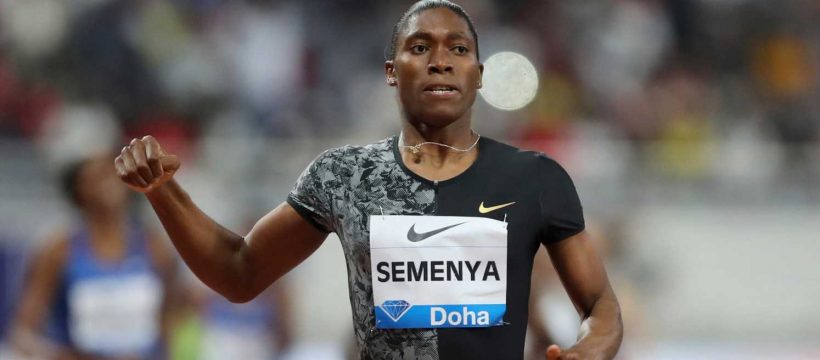Olympic gold medalist Caster Semenya won't defend her 800-meter title and compete in September's world track and field championships in Qatar after a Switzerland court reversed its ruling late Monday.
The court ruled that the 800-meter runner needs to adhere to rules passed by the sport's governing body — the International Association of Athletics Federations (IAAF) — that require intersex athletes like Semenya to take testosterone-suppressing drugs.
“I am very disappointed to be kept from defending my hard-earned title, but this will not deter me from continuing my fight for the human rights of all of the female athletes concerned,” Semenya said in a statement released by her lawyer.
For the last half decade, the South African runner has had a human rights saga attached to her career. Back in May, the Court of Arbitration for Sport's panel of three judges denied Semenya's appeal against the IAAF rules that force female runners like herself to decrease their naturally high testosterone levels in select track and field events.
South Africa's Caster Semenya crosses the line to win the gold in the women's 800-meter final during the Diamond League in Doha, Qatar. Caster Semenya will not defend her world title in the 800 meters after a Swiss judge ruled that she must take testosterone-suppressing drugs. (Photo: Kamran Jebreili, AP)
But Switzerland’s Federal Supreme Court last month suspended that rule, allowing Semenya to continue competing without using medication to lower her testosterone levels. Then last week a single judge on the Swiss Federal Supreme Court reversed the rulings.
Semenya, 28, is hyperandrogenous, meaning her body naturally produces high amounts of testosterone, the hormone that helps build muscle, endurance and speed. Experts believe Semenya and other intersex athletes, although born female, develop internal testes around the time they hit puberty — keeping their gender the same but creating an unfair advantage.
The CAS based its May determination on scientific evidence, with the judges saying then that "such discrimination is necessary" in reference to singling Semenya out, to preserve "the integrity of female athletics."
The ruling also can affect Semenya's Olympic future with the Tokyo Games slated for next summer, as the International Olympic Committee takes on the IAAF's rules. Semenya won gold in the 800 at the London (2012) and Rio (2016) Games.
Semenya's attorney, Dorothee Schramm, said in a statement released to the public: "We will continue to pursue Caster’s appeal and fight for her fundamental human rights. A race is always decided at the finish line.”
Source: Read Full Article
